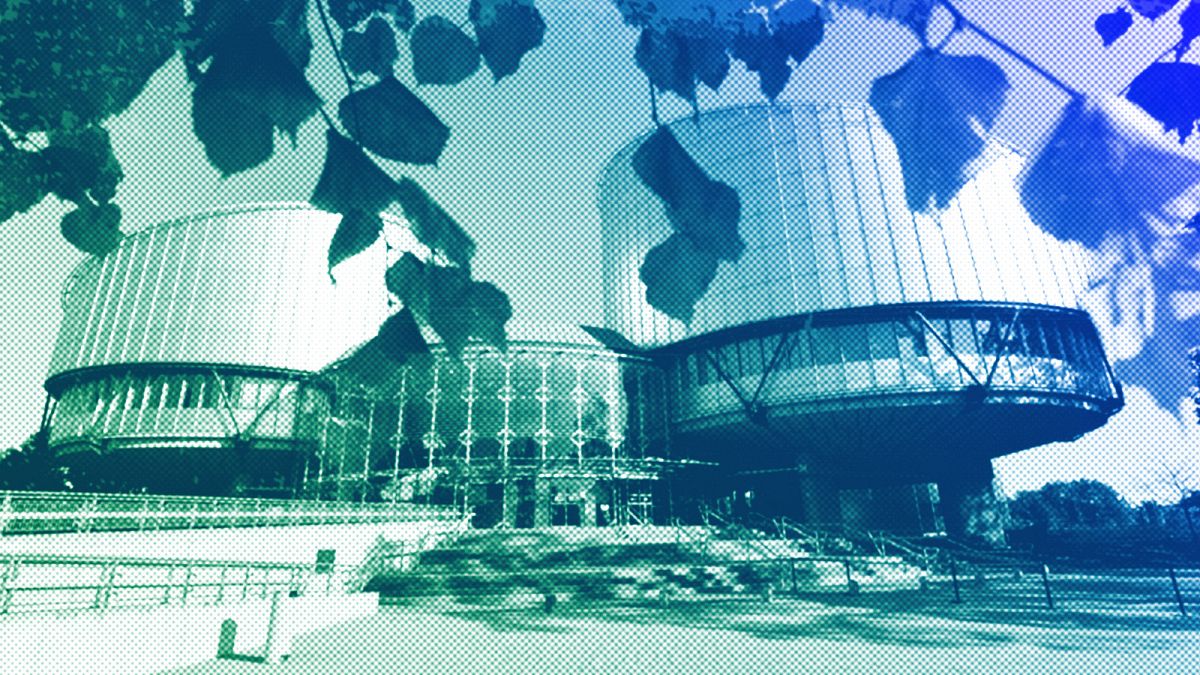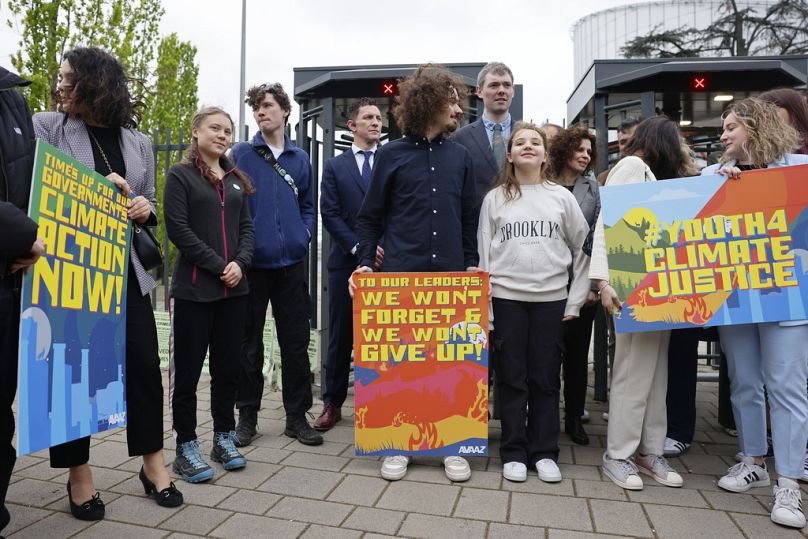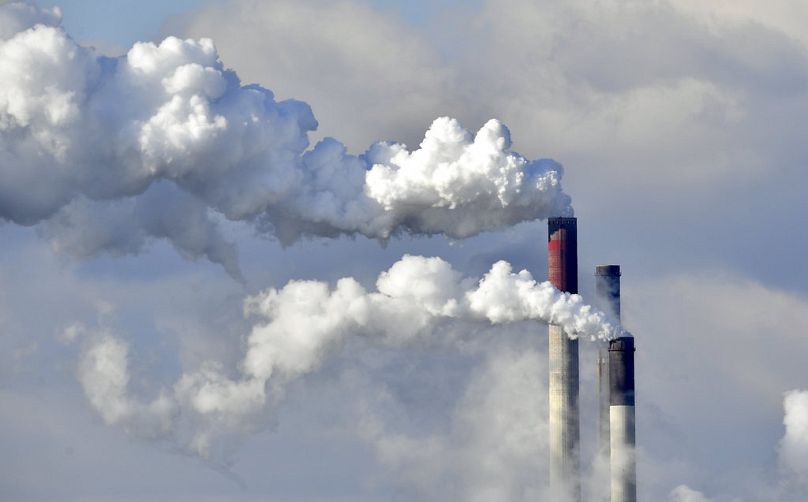Our cases coasted to the height of Europe’s top human rights court. Now we need to unite behind the ruling and force all European governments to ensure a liveable future for ourselves and our loved ones, Claudia Duarte Agostinho and Dr Elisabeth Stern write.
Tuesday, 9 April will go down in history as a milestone in the fight for a liveable future for all.
On that day, the European Court of Human Rights recognised the climate crisis as an existential threat to us all and confirmed that our leaders must act immediately to protect people of all ages from accelerating harm.
This ruling will be a crucial tool to pressure governments to reduce emissions, and activists are already taking to the streets to demand much stronger government action.
We and our fellow "applicants" — more than 2,500 Swiss senior women and six young people from Portugal — argued in two lawsuits against 32 European governments for violating our human rights by failing to take urgent climate action.
Every tonne of greenhouse gas they emit pushes us closer to climate “tipping points” which will make our planet unliveable.
Our win is a win for all
Though we are of different ages, reside in different countries, and speak different languages, we share the same struggle to survive a world of worsening weather extremes.
Many of us find ourselves trapped indoors by heatwaves. Health conditions like asthma get exacerbated.
Despite the clear evidence of the climate crisis's negative impact on our lives, our governments fought tooth and nail in a court of law to downplay it, arguing that our fears were only figments of our imaginations.
But it is they who are living in a fantasy world, claiming that their climate policies are sufficient while continuing to contribute to global heating, being on course for a catastrophic nearly 4°C increase by the end of this century.
While the governments succeeded in their efforts to have the Youth4ClimateJustice case against the 32 governments dismissed on technicalities, the KlimaSeniorinnen won against Switzerland.
This win is truly a win for all, as the case has three key outcomes that should empower everyone fighting for a liveable planet.
Climate action and human rights are more than interlinked
First, the court confirmed the legal position: climate action is essential to safeguard human rights.
Second, the ruling makes it clear that emissions targets must be based on what the latest climate science says is necessary to limit global warming to 1.5°C, as outlined in the Paris Agreement. It also emphasises the need to respect the remaining carbon budget.
Emissions must be reduced immediately to prevent future generations from suffering significantly more harm from the climate crisis.
Thirdly, the court’s ruling sets out the obligations to tackle the climate crisis for all 46 countries in the Council of Europe. This puts people taking climate cases in national courts across Europe in a much stronger position.
The court has held governments to their promises made in 2015 through the Paris Agreement. As they haven’t kept this promise and let emissions rise, the reductions we now need are extremely steep.
The only way to limit warming to 1.5°C now is for rich countries to throw tremendous efforts into reducing emissions and to financially support poorer countries to do the same.
It's time to unite over a fight for a liveable future
Importantly, the court has not said how Switzerland and other countries must cut their emissions. Instead, it has said very clearly that democratically elected politicians should decide where and how emissions cuts should be made.
The science shows that not only is it still possible to achieve the green transition while protecting livelihoods, but it is also the only way to do so.
Science-based climate policy (which the court said countries must implement) means making those profiting most from the climate crisis pay for the transition. So, the court’s ruling not only lights up the way for a safer world, but for a fairer one.
That Tuesday in early April showed us that the law is a powerful tool in the fight against the climate crisis. But by itself, the law is not enough. The most powerful force for change is the force of a community who unite behind a cause.
Our cases coasted to the height of Europe’s top human rights court, riding the wave of popular support for much stronger climate action. Now we need the same movement to unite behind the court’s ruling and force all European governments to do what is necessary to ensure a liveable future for ourselves and our loved ones.
We, six young Portuguese people and thousands of Swiss senior women, remain united in our pursuit of a safe future, and we hope you can join us in this endeavour. As it is said in Portuguese, a uniao faz a força — strength lies in unity.
Claudia Duarte Agostinho is one of the six Portuguese young people who filed the climate case against 32 countries at the European Court of Human Rights in 2020. She is currently working as a nurse in a local hospital in Leiria. Dr Elisabeth Stern is one of the over 2,600 members of the Swiss Senior Women for Climate Protection, the organisation that filed the climate case against Switzerland in 2020 at the European Court of Human Rights. She is a retired ethnologist who taught ethnology at the University of Zurich, worked as a research associate at the University of Zimbabwe in Harare and was a Senior Lecturer for intercultural management competence at the University of St Gallen.
At Euronews, we believe all views matter. Contact us at view@euronews.com to send pitches or submissions and be part of the conversation.





